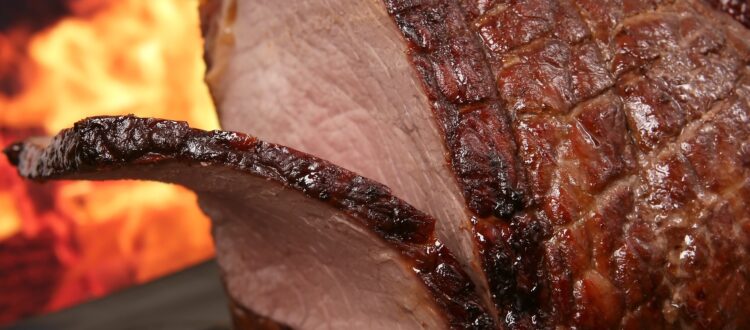
The Food Safety Information Council today released their advice for cooking winter roast meats safely.
Cathy Moir, Council Chair, said whether you are holding a Christmas in July event or just enjoying a winter roast dinner, there are some safety tips you need to follow to make sure you and your family and friends don’t get sick.
‘Meat is expensive these days so you want to not only make sure it is food safe but also that it is cooked to the best quality. Firstly, buy a meat thermometer to check the temperature and follow these 6 simple tips for cooking your roast:
- Whole cuts of red meat such as beef, lamb or kangaroo (that have not been stuffed, rolled, mechanically tenderised or flavour infused) will only have bacteria on the outside so can be cooked to your taste. As a guide, well done is 77°C, medium is 71°C and medium rare 63°C. Leave to rest for 3 to 5 minutes after cooking and before consuming. Eating these cuts of meat very rare (under 63°°C) or raw may put you at risk of parasitic infection such as toxoplasmosis.
- Minced meat, hamburgers, sausages, livers (or other offal), corned beef and roasts that have stuffed, rolled, flavour infused or mechanically tenderised are higher risk. These should be cooked to 75°C in the centre.
- Poultry such as chicken, ducks, spatchcocks, capons or turkey (including their livers) either whole or minced should be cooked to 75 °C in the centre or in the thickest part of the leg if a whole bird. cook any stuffing separately as it will slow the cooking and the inside of the bird might not be fully cooked.
- Pork in whole cuts such as steaks and pieces should be cooked to 70°C and roasts to between 70°C and 75°°C and left to rest for 3 to 5 minutes.
- Veggie or vegan roasts are becoming popular so follow any cooking instructions on the packaging or if you make your own cook to 75°C in the centre.
- If you prefer fish to roasts cook it to around 63°C or when flesh flakes easily.
Finally, raw meat and poultry juices are a food poisoning risk, so always use a separate chopping board for raw meat and another for uncooked veggies and salad and always wash your hands, chopping board and utensils after handling raw meat or poultry,’ Ms Moir concluded.
Media contact: Lydia Buchtmann, Food Safety Information Council, 0407 626 688 or info@foodsafety.asn.au

